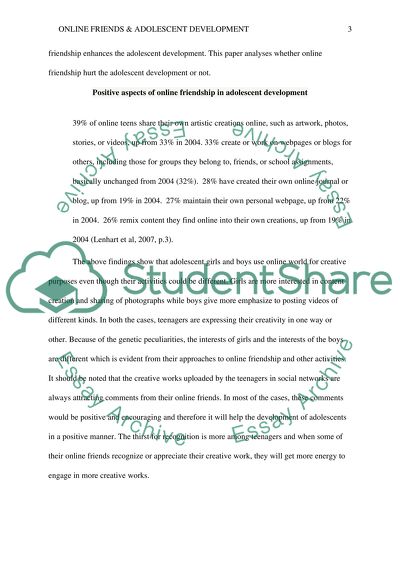Cite this document
(Do Online Friendships Hurt Adolescent Development Coursework, n.d.)
Do Online Friendships Hurt Adolescent Development Coursework. https://studentshare.org/social-science/1391237-do-online-friendships-hurt-adolescent-development
Do Online Friendships Hurt Adolescent Development Coursework. https://studentshare.org/social-science/1391237-do-online-friendships-hurt-adolescent-development
(Do Online Friendships Hurt Adolescent Development Coursework)
Do Online Friendships Hurt Adolescent Development Coursework. https://studentshare.org/social-science/1391237-do-online-friendships-hurt-adolescent-development.
Do Online Friendships Hurt Adolescent Development Coursework. https://studentshare.org/social-science/1391237-do-online-friendships-hurt-adolescent-development.
“Do Online Friendships Hurt Adolescent Development Coursework”. https://studentshare.org/social-science/1391237-do-online-friendships-hurt-adolescent-development.


